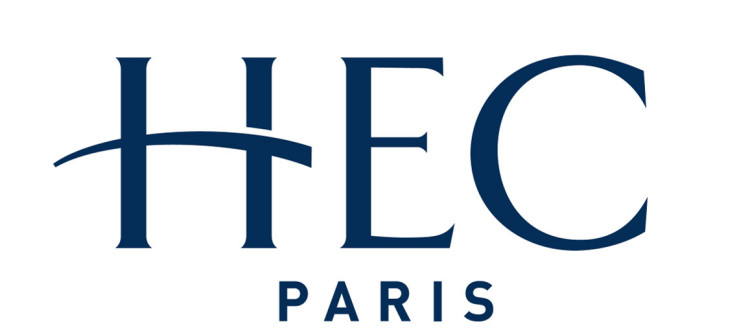- Innovation
Creating Intelligence in Times of Uncertainty
Why you should be making decisions right now
When the coronavirus crisis began, most people were waiting to go back to normal. For HEC Paris Professor of Marketing, Anne-Sophie Chaxel, waiting is not an option. You should be making decisions, right now—especially if you are a leader. However, how can we make the right decisions in times of uncertainty? “It all starts with biases,” answers Professor Chaxel. If you can free yourself from certain biases, you may be able to manage the unforeseeable future, and become better at making successful decisions.
Biases are imprinted in our brain
Have you ever stayed home on an election day thinking that your favorite political party would win? If so, you may be optimistic, but also biased. We all experienced this ‘wishful thinking’ bias at the beginning of the Covid-19 pandemic. We and more specifically country leaders did not react quickly because we were all being overly optimistic. “People tend to see desirable events as more likely to happen,” confirms Professor Chaxel. “With Covid-19, we were even more likely to think it was not going to happen because we didn't want it to happen.” This bias makes it difficult for leaders to manage uncertainty,” she underlines.
What nourishes uncertainty, and how to deal with it?
For many years, Chaxel has carried out research on both information processing and distortion. Her research led her to categorize three main sources of uncertainty. First, data. Because of mental models, which make us retrieve information that we know, we tend to give too much importance to available (and mentally accessible) data. At the beginning of the pandemic, Europeans retrieved information they already knew, such as data about the flu crisis. This mental model distorted their judgement as they accorded too much value to this potentially unreliable information and did not consider the unknown factors around the virus. Understanding the uncertainty in data, questioning the representativeness of your data, and using multiple sources is essential if you want to avoid misinterpretations.
Second, ourselves. When assessing a situation, our metaknowledge—what we think we know about our knowledge—can make us become overconfident. Questioning what we know, and what we think we know is fundamental. “Building confidence intervals can deeply impact uncertainty,” explains Chaxel. By calibrating your confidence interval, you can estimate more effectively and find solutions. “If you know your primary knowledge is lacking, you will keep looking for information. But if you don’t know what you don’t know, you will stop. This is when biases in your decisions start, simply because you think you have the correct data when you don’t.” She recommends questioning our metaknowledge, thinking about what we don’t know, determining confidence ranges for any estimate, allowing for uncertainty, and seeking continuous feedback.
Third, others. “We should always be careful with the data we receive from experts.” We need to gather data from different experts, seek authorities with diverging points of view to build better confidence intervals, and of course consider other sources. “Sometimes, no knowledge is better than nonsensical knowledge,” she adds, “because you will stop seeking information and make a decision right away.”
The best way to deal with uncertainty affirms Chaxel is to respect it.
Expand what you know before interpreting information
Another aspect of Chaxel’s research analyzes biases in interpreting ambiguous information. The ‘I know what I know’ pattern makes us evaluate new information in a way that confirms our existing beliefs. This distortion of information can lead to stronger opinions, less creativity, more stereotyping and polarization. In times where we need to work together, we can’t afford to develop these tendencies. We should instead challenge the status quo: “Be aware of your natural tendency to protect your beliefs, and value the opinion of people who fight the status quo,” she states.
We all desire to regain control of our world. Instead of seeking control over uncontrollable events, people should regain control of what is controllable, such as their thinking process, aspects of their decision making or of their life. Leaders therefore need to make short term plans and be very flexible.
Last but not least, nobody will get the outcome they want. The expected outcome will never occur in uncertain environments. Therefore it is important to change how you measure success: validate key criteria to make a solid process-based decision instead of valuing the outcome. In other words, expect the plan to not follow the plan, and accept it.
To make better decisions in the face of uncertainty, build certain knowledge fast
Although the wait and see approach is tempting in uncertain environments, Chaxel advises otherwise: “Have plans now even though they are not perfect and get feedback rapidly to learn from what you’ve done.” Fast learning from experience, getting feedback and moving forward play a crucial role in making better decisions. If learning is key, we need to make the distinction be-tween experience and learning: “Experience is not learning. You are not going to learn much from the outcome, as the outcome is the experience in itself,” she confirms. On the other hand, learning comes from a good understanding of the causes of the outcome. Decision makers should rely on fast learning from experience and short feedback loops rather than hoping for a game changing solution. “Constant updating and continuous improvements to your plans will happen as better information becomes available about what is working or not,” adds Professor Chaxel.
However, two major biases can happen when trying to learn from experience under uncertainty. First, the retribution bias, which makes us think that our success comes from our skills, and our failures from bad luck. When it comes to others, we adopt the reverse interpretation. Their failures are skills related, while their success is due to luck. The other bias, the hindsight bias, occurs when people believe an event is more predictable after it becomes known. It is indeed easier to analyze a situation once we have the results. To avoid this ‘after-the-fact’ bias, Chaxel invites leaders to think forward by running premortems and to create enthusiasm for learning, not for outcomes. “When you make a decision, try to accept your past failures, and analyze all the reasons why you failed in advance. This will allow you to distinguish what is controllable and what is not,” she adds.
What do managers and executives need to do to lead through uncertainty
More than ever, employees and customers are hungry for information, and expect reliable information, together with reliable decision makers who can interpret and respond to this information.
Clear and planned communication is consequently more important than usual. With people experiencing higher levels of stress, leaders need to focus on the ‘why’—why are they asking employees to carry out a specific task—rather than on the ‘what’ and ‘how’.
The coronavirus crisis has impacted our capacity to think clearly. It challenges our humanity and tests our ability to react with intelligence when faced with uncertainty. Fortunately, we know how uncertainty works, and how it impacts our thinking. “Respect uncertainty, expand your knowledge, and build certain knowledge fast is the best way to create intelligence in the face of uncertainty, and make better decisions”, concludes Anne-Sophie Chaxel.
………………………………………………………………………………………………………………………………….
The article is based on the HEC Paris Insights Webinar: Creating Intelligence in the Face of Uncertainty.
ARTICLES YOU MIGHT LIKE
VIEWPOINT
Cognitive neuroscientist, Lynda Shaw, explains how to understand and support intrapreneurs
DEVELOPING LEADERS QUARTERLY MAGAZINE AND WEEKLY BRIEFING EMAILS


































